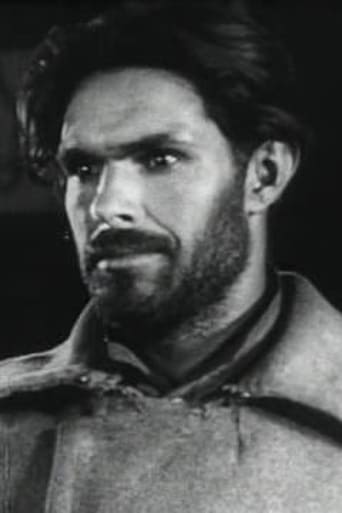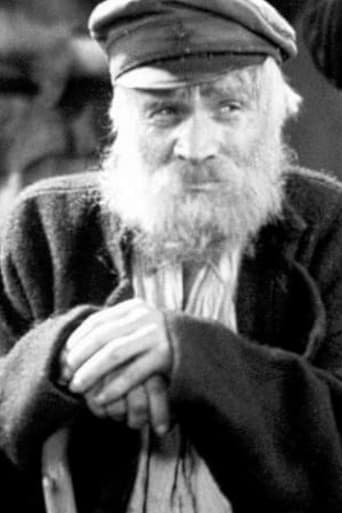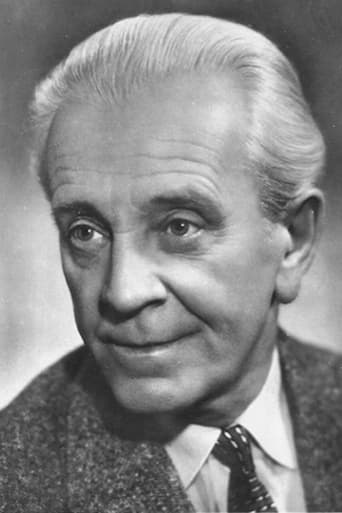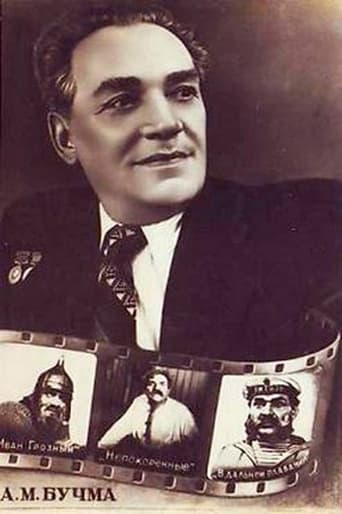Stevecorp
Don't listen to the negative reviews
Odelecol
Pretty good movie overall. First half was nothing special but it got better as it went along.
Glimmerubro
It is not deep, but it is fun to watch. It does have a bit more of an edge to it than other similar films.
Zlatica
One of the worst ways to make a cult movie is to set out to make a cult movie.
Teodor Georgiev
While I can understand why Arsenal is considered historic, it has not aged well. The scenes at the beginning of the film are confusing - we expect the film to be about the mother, only to find out she has relatively little to do with the film. By the time the main protagonist (Timosh) is established, a good chunk of the movie has passed. The acting is usually superb but drops when it should be at its strongest. It is hard to take the scene with the laughing gas seriously given how obviously the man is just acting. He doesn't move his arms or his body, and seems to only fall to the ground when he's taken off and put back on his glasses a certain number of times. Thankfully, scenes at the end of the movie redeem this level of acting. I'm also not sure what genre the director was going for. The military scenes suggested it to be an action movie, but besides those, I didn't see anything exciting. The movie then tries to be dramatic when one of the characters is about to shoot another in the back of the head, but can't manage. This had to be my favorite scene simply due to its originality. Even then, during the final few moments, when Timosh is being shot at, I couldn't take the movie seriously. His inability to die only reminded me of the final scene from V for Vendetta, and I found myself comparing him to a Ukranian V, with much less impressive equipment. This was the defining moment where the audience has to admit the movie is just too distant from modern audiences to be relatable. Everything it tries to do has already been re-done with better filming, special effects, and actors. It falls flat.
chaos-rampant
It boggles the mind to contemplate how far back was cinema set with the advent of sound; not sound per se, but the whole political environment that was concurrent at the time. So many fascinating experiments with film were afoot by the late 20's and would be put on hold for the next twenty, thirty years.With DW Griffith ten years before, cinema was a transliteration. The narrative was straight-forward, time, even when broken apart, was a straight line that rushed towards climax that revealed our placement in destiny, the chain of causality was clearly defined - this begat that, and we perfectly understood why. Film was merely a tool of chronicle, with the gods - the mechanisms above - and shadows - the internal image outwardly recast - largely taken out.But just ten years later, something like this was already so far ahead. So, the causality of events is left to our sphere of imagination, narrative is fragmented, purposely eliptic into modernist abstraction. Images require our folding in them to be complete with meaning, or channel their imports across different levels of experience; there is a scene of men rushing on horses to bury their comrade, they could be rushing into a number of things; and back at the weapons foundry where a strike is holding up, eloquent shots of machinery whirring in motion suggest afoot the social machinations at large. Life here is not passed down to us whole, with purpose or meaning; but is rather the process of coming into being.This is far-reaching stuff in terms of what can be done with cinema. It posits that the image can directly depict private, inner states and larger, collective worlds as bound together by common soul - the oppressed peasants motionless like zombies, the military officer mechanically shooting at partisans. The shots of galloping horses are frenzied, but up above the clouded skies ebb with time. So, what started only a couple of years before in Soviet studios had reached this apex; image was engineered - or perhaps intuited in the case of Dovzhenko, who was the least of the theorists - to unify vision. The empire is inland as well as out, and stretches across the one space.There are few words in all of this, our safe passage with logic is made perilous, adventuresome. Germanic cinema offered us the world of noir and I am grateful to them; but when it comes to what we often call 'pure cinema' as a quick resort, they could not match here - or France.Oh, there is The Last Laugh, which is a marvellous study. But purely in terms of images Dovzhenko is worth two or three of those.
Oslo Jargo (Bartok Kinski)
The film itself is only a compilation of scenes which have no inherent meaning to someone living outside of Russia. I won't deny that some of the images and techniques were quite revolutionary at the time (filmed 1928) but the problem with the film is that it has no interest to the intellectual or common man. We are merely watching an arranged form of pictures, ranging from a one arm man beating a horse, to a toothless soldier in the war. Everything in between is awkward, haphazard and quite unnecessary. It would have been possible to invent a forum which kept the viewer interested but this would not be it although the method of the director is quite brilliant.In all, one should view this if they are an art student, on hallucinogenic drugs, or a student of pre-Tarkovskian cinema.
dwpollar
1st watched 3/23/2002 - 5 out of 10(Dir-Alexander Dovzhenko): As heartfelt and sincere as this movie is it was hard to understand as a silent movie without a screenplay in hand. I guess that's how I am able to judge this film. I realize that it is a breakthrough find and wonderful restoration of a monumental film about the Russian revolution but this doesn't make it a good movie in narrative. There is some wonderful imagery and ideas represented about non-violence that the filmmaker displays but again this doesnt' make a wonderful movie. Probably a good movie for the collector and possibly historian, but not necessarily for the film movie fan.





